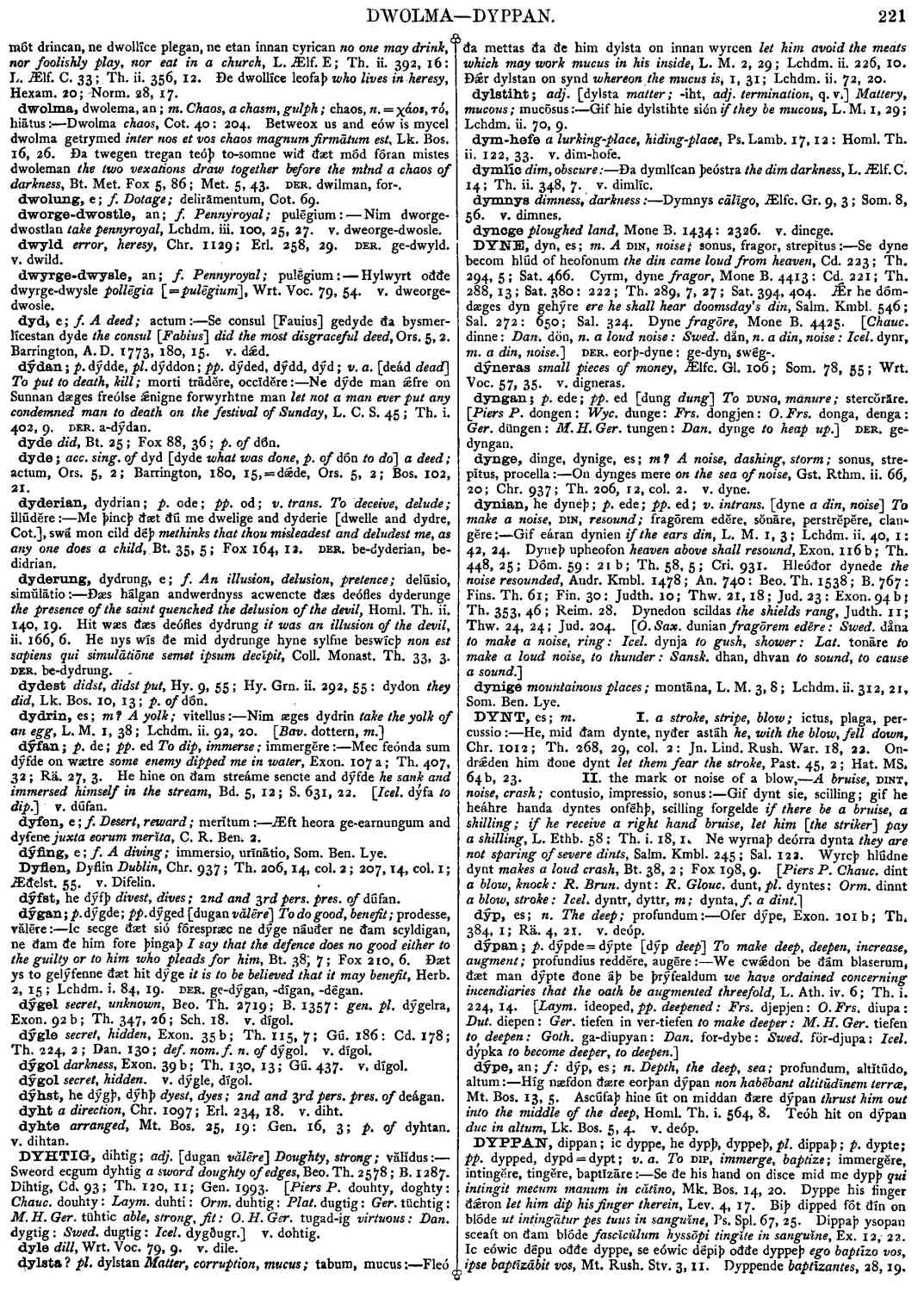DYNT
- noun [ masculine ]
-
He, mid ðamdynte , nyðer astáh
he, with the blow, fell down,
- Chr. 1012 ;
- Th. 268, 29, col. 2: Jn. Lind. Rush. War. 18, 22.
-
Ondrǽden him ðone dynt
let them fear the stroke,
- Past. 45, 2;
- Hat. MS. 64 b, 23 .
-
Gif dynt sie, scilling; gif he heáhre handa dyntes onféhþ, scilling forgelde
if there be a bruise, a shilling; if he receive a right hand bruise, let him [the striker] pay a shilling,
- L. Ethb. 58 ;
- Th. i. 18, 1.
-
Ne wyrnaþ deórra dynta
they are not sparing of severe dints,
- Salm. Kmbl. 245 ;
- Sal. 122 .
-
Wyrcþ hlúdne dynt
makes a loud crash,
- Bt. 38, 2;
- Fox 198, 9.
Bosworth, Joseph. “DYNT.” In An Anglo-Saxon Dictionary Online, edited by Thomas Northcote Toller, Christ Sean, and Ondřej Tichy. Prague: Faculty of Arts, Charles University, 2014. https://bosworthtoller.com/8211.
Checked: 1